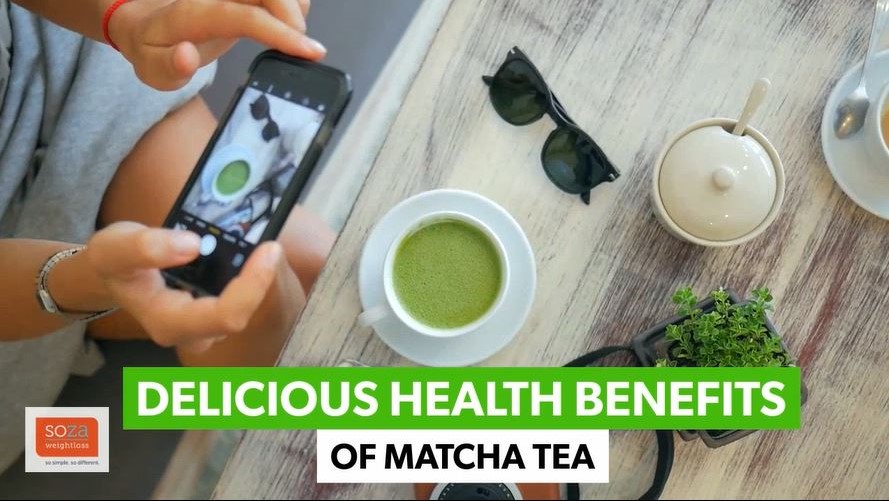Health Benefits of Matcha Tea!

Should you go crazy over Matcha tea? Sure!
First what is it?
Matcha is a type of green tea made by taking young tea leaves and grinding them into a bright green powder. The powder is then whisked with hot water.
Matcha tea is a powder.
Why the craze over Matcha?
Let’s investigate the health benefits. Matcha contains a type of antioxidant called catechin, which is believed to have cancer-fighting effects on the body.
According to a 2014 study, Matcha tea dropped blood pressure significantly on randomized controlled trials. A 2011 study reported that drinking green tea appeared to be linked with lower levels of bad LDL cholesterol, but more research is needed to conclude that finding.
Matcha helps to safely cleanse the body of harmful elements. Chlorophyll, the element that gives green tea and other plants their green color, is also a powerful detoxifier, helping to eliminate chemicals and heavy metals from the body.
According to some studies, Matcha helps to prevent heart disease, type 2 diabetes, cancer, and even encourages weight loss.
Matcha can support weight loss
- A study featured in the American Journal of Clinical Nutrition found that consuming Matcha green tea can increase thermogenesis (the body’s own rate of burning calories).
- Matcha boosts your metabolism which helps burn more fat.
- Matcha contains incredibly high levels of the antioxidant EGCG (epigallocatechin gallate), which helps to increase your metabolism, which as you know, burns more fat again.
- Matcha helps to stop your body from absorbing as much fat in your diet.
Matcha versus regular green tea
Both Matcha and regular Green Tea come from the Camellia sinensis plant (as do all other green teas), so what is the difference?
The answer is simple: The way they are consumed and processed.
When you drink Matcha, you are ingesting all the whole tea leaves and all their nutritional properties. With regular green tea, you soak the tea leaves or tea bags, and after steeping you throw away the leaves. In fact you are throwing away the amazing health benefits of green tea!
That is why Matcha green tea is far superior for detoxing or for weight loss as compared to regular green tea.
Matcha green tea contains 3 times as much of the major antioxidant (EGCG) than regular green tea, according to an analysis the "Journal of Chromatography" reported in September 2003.
There are some side effects to consider
Although Matcha is generally considered safe when consumed in small amounts as a beverage, due to the caffeine content, green teas may trigger certain side effects (such as headache, insomnia, irritability, diarrhea, and heartburn) when consumed in excess. The National Institutes of Health (NIH) warn that green tea may cause stomach upset and constipation in some people.
Matcha may contain some harmful substances like fluoride, arsenic, and lead, from the soil.
Children and pregnant or nursing women should avoid it.
If you intend to use Matcha for a related health condition, make sure to consult your physician first.
Conclusion
We all know everything should be taken in moderation. If you’re good with caffeine and drink coffee or tea regularly, then try a cup of Matcha! Today!








